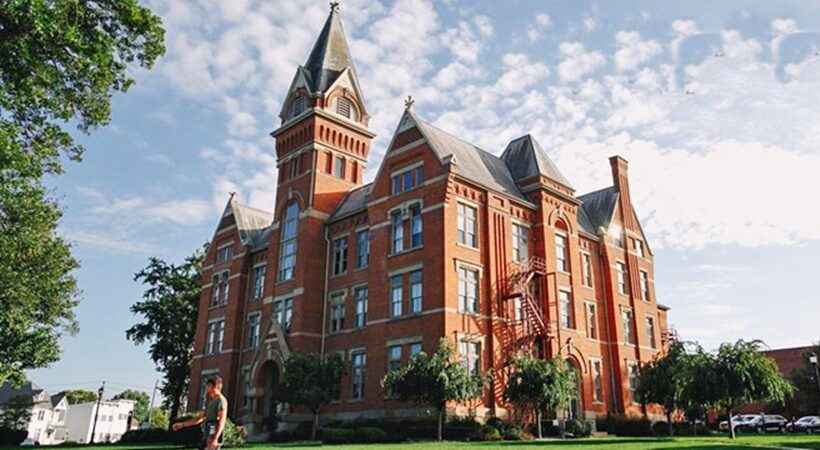Heidelberg University is a public research university in Heidelberg, Baden-Württemberg, Germany. Established in 1386, it is one of the oldest surviving universities in the world as it was the third university founded under the Holy Roman empire. With its century’s old legacy of pioneering research, it is a German excellence university, part of the U15 group and Coimbra Group, and one of the best institutions in the world for higher studies. Its notable alumni include 29 Nobel prize winners, eleven heads of states and giants such as Max Weber, Dmitri Mendeleev, Hegel and Arnold J. Toynbee. Currently offering twelve faculties that conduct undergraduate, postgraduate and doctoral programmes in more than 100 disciplines, the University of Heidelberg offers excellent opportunities for students pursuing higher studies.
Under the faculty of Philosophy, the university offers an undergraduate programme in South Asian studies. The programme is multi-disciplinary, practical-oriented and innovative in its design. It Focuses on crucial skills such as practical language proficiency, philological expertise and a critical approach to cultural studies and social sciences. The programme also strives to provide intensive instruction in Bengali, Hindi, Sanskrit, Tamil, modern Tibetan, classical Tibetan and Urdu. The course provides access to scholars who have been working for over 40 years on developmental economics, sociology, anthropology, the cultural and religious history of South Asia, geography, politics and literature of South Asia. It is critical to note that the term South Asia refers to a broad geographical and cultural unit that includes modern nation-states such as India, Pakistan, Bangladesh, Sri Lanka, Bhutan, Nepal, Afghanistan and the Maldives.
The six-semester programme is spread out over three years and offers a unique opportunity called the mobility window. In the fifth semester, the students can put their theoretical knowledge to the test by spending at least 3 months in South Asia at a South Asian university or accompany research projects. The languages of instruction include German, English and occasionally South Asian languages. This opens a unique window for the students to master several languages, as the courses are provided free of cost by the university.
In addition, the South Asian Institute at the Heidelberg University has exchange programmes with many top universities in South Asia. It is also a part of the ERASMUS programme and provides its students exchange programmes with top European universities ranging from Edinburgh, Leiden, Paris and Florence. This enables students to gain a degree qualification that is global, specialized, and relevant to practice.
The programme opens up career opportunities in publishing, radio and television broadcasting, communications and translation, further education, business consultancy, international organizations (such as the UN or the EU), international cooperation (for the GIZ for example), humanitarian organizations (such as Malteser of the International Red Cross), universities, research institutions and think tanks. For further information on the programme, click here.



















